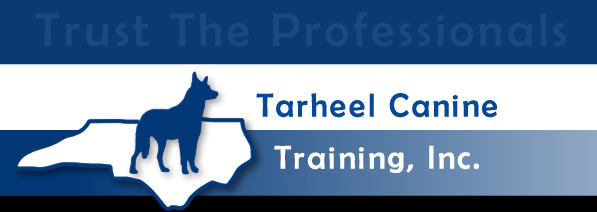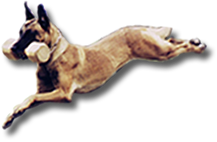You can spot a seasoned detection handler by how he approaches a search area, whether on a deployment or in a certification. They look at their area before they leap into action. New handlers tend to step off at 100 miles an hour into a search problem before giving a moment’s thought to how to approach the problem. Here are some tips:
1. Survey the area you will search and identify your anchor points. Determine if you will free search, scan, or direct the search. If you can’t free search or scan, your training is incomplete, so learn from someone who can how to teach your dog to do all three.
2. If trained properly with well thought out hide placement, and the dog has a nicely conditioned search pattern to locate productive areas, you won’t have to be too involved so you will likely scan or free search (safety is a consideration). Then your role is to note where he doesn’t go, and where he does go, and complete the pattern with this knowledge and some direction.
3. Identify your hazards, to you and the dog with a safety check before proceeding as well.
4. Identify obstacles to a thorough search: something preventing your dog from going deep into an area, or high into another , or low somewhere.
5. Read the Air: Understand the likely air movement and ventilation of the area, both mechanical and physical. Are there vacuums created with gaps under or over exterior doors, where scent might gravitate? Are there intakes or vents in the area that might push or pull scent? Is the wall (sun beating down on it from behinde, say) or window near your search area relatively cold or relatively warm compared with the rest of the room, thus inducing convection currents?
5. Note places you will particularly want to present high or low, because of the air movement or ventilation.
6. Then start your search, and watch your dog and read his behavior. Think about each search problem thoroughly prior to starting. It will likely take less than a minute to notice all of these things.
If you have trained like you should have, you will trust him. If you haven’t trained like you should have, make a commitment to be better than you have been, but don’t get pissed at your dog. He’s not the one who would rather watch the game than train.

